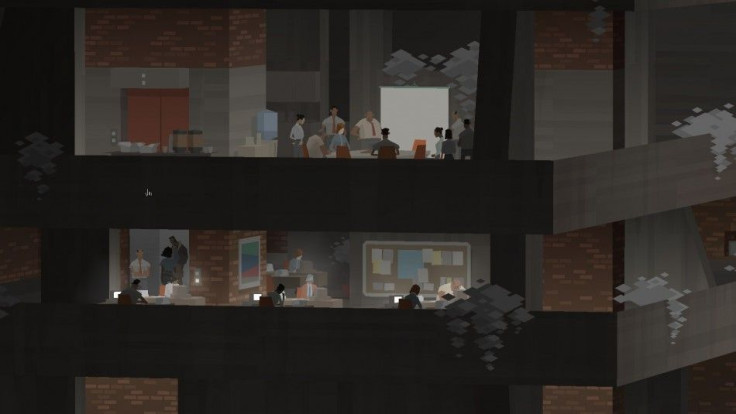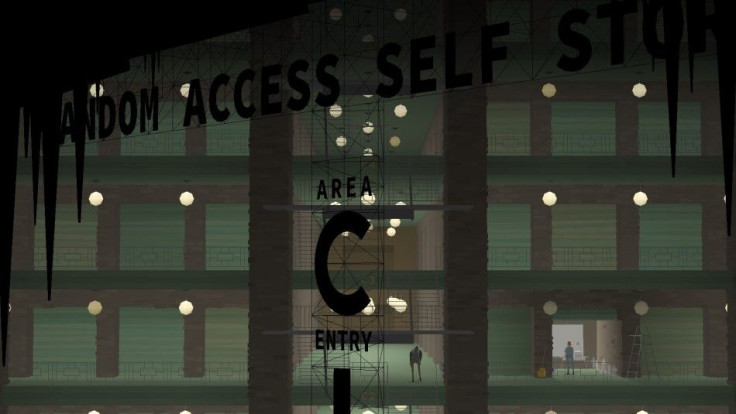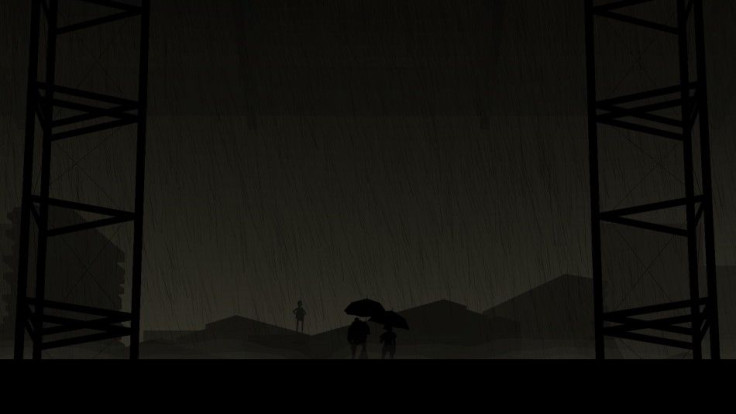Given the praise that fans and critics were so quick to lavish on Kentucky Route Zero, I thought for sure my latest foray into the point-and-click genre would prove as enjoyable as my last, but Kentucky Route Zero just can't seem to get out of its own way long enough to offer real competition to series like The Walking Dead or The Wolf Among Us.
Admittedly, many would still consider me a relative newcomer to point-and-click gaming, considering the bulk of my experiences with the genre have been limited to Telltale Games' post-Sam & Max projects. On most occasions, I just don't have the patience to sit down and really offer as much attention as many entries in the genre tend to demand. Still, how could I let 2013 come and go without at least taking a peek at Kentucky Route Zero?
For about a week, coverage of Kentucky Route Zero was near unavoidable. Some of the biggest names in video game coverage couldn't find enough to say about Cardboard Computer's debut project, and a few outlets even suggested that Kentucky Route Zero should take home Game of the Year honors. It wasn't an isolated incident either. In fact, Polygon just requested readers' arguments for/against naming Kentucky Route Zero the 2013 Game of the Year last week. So, it's kind of popular.
Without a doubt, Kentucky Route Zero is one of the better looking point-and-click adventures to emerge during 2013, and I'd even go so far as to say it's one of the most aesthetically-pleasing projects to stick with a (mostly) two-dimensional perspective in the last decade.
Where many game developers tend to lean towards pixel art (or slight variations on the medium), Cardboard Computer has created a game that looks like a watercolor comic book come to life, but with a minimalist approach that keeps the screen from feeling too crowded. On rare occasions, Kentucky Route Zero will remind you that it's unfolding in a three-dimensional space, briefly pivoting the camera around the protagonists introduced in the game's first two acts, but the bulk of Kentucky Route Zero's exploration and narrative sequences will take place in 2D.

Like the game's art style, Cardboard Computer took a similarly minimalistic approach to the Kentucky Route Zero soundtrack, which mostly consists of chirping crickets and the steady rumble of a truck engine. Occasionally you'll get a few notes from an actual piece of music, but you're unlikely to notice after the first couple of minutes anyways. There's rarely an uncomfortable silence, but Cardboard Computer once again proves that sometimes you really can do more with less. The largely unobtrusive collection of sounds helps convey the relative emptiness that players are presumably supposed to feel as their truck carries them to-and-fro on what seems to be a never-ending Kentucky night.
Unfortunately, outside of a handful of text-only interactions -- encountered only by those who step off the beaten path between Kentucky Route Zero's story-advancing segments -- the game does very little to reward those who bother to veer off the handful of streets you're specifically told to take during your travels.
Of course, this lack of reward for exploration wouldn't be a big deal, had Kentucky Route Zero's story made up for the relatively limited nature of its gameplay experience. Instead, Kentucky Route Zero's narrative is a convoluted, hard-to-follow, absurdly vague collection of interactions that will frequently shepherd players from one location to the next without ever giving you any sense that you've learned anything meaningful about the story unfolding before you.

To be honest, at certain points it almost became impressive. You see, despite taking a minimalistic approach to a great many things, Kentucky Route Zero is not a game that suffers from a shortage of words. Whether it be vivid descriptions of your surroundings, pleasantly long-winded conversations between characters, or one of the tiny text adventures awaiting those who do a little exploring, you'll never have a shortage of things to read in Kentucky Route Zero. So it's a bit confusing that a game with so much to say fails to offer up even the tiniest morsel of seemingly meaningful information.
Perhaps Cardboard Games really needed two complete chapters of their five-episode series to really introduce all the necessary components of Kentucky Route Zero. After all, it's an entirely new franchise, with a fairly diverse cast of characters who each seem to have quite specific motivations. That potential doesn't outweigh what's currently on the table though; a beautiful, but largely forgettable, point-and-click adventure that seems badly in need of a little direction.

Kentucky Route Zero Review - Final Verdict
At this point, I can honestly say that I'm invested enough in Kentucky Route Zero to see the story through to its end...but that's almost entirely due to the fact that I've already paid for all of the Kentucky Route Zero content. I'm also the sort of person who likes to finish what they start, and one of those "gotta get the most for my money" consumers that will play a game or watch a movie until I can barely stand to look at it anymore. Hell, I watched Heroes until it was cancelled; so I'm not exactly the type that knows when to quit. That said, had each Act of Kentucky Route Zero been offered as individual purchases, I'm not sure I'd return to the series after completing Acts I and II.
Where Kentucky Route Zero succeeds is undoubtedly in its presentation; weaving beautiful art assets together with an appropriately minimal soundtrack to maintain the air of mystery that Cardboard Computer so clearly sought with Kentucky Route Zero. But, even if there's some sort of secret waiting for me at the end of the Kentucky Route Zero tunnel - and I'm not entirely convinced that there is - I'm just not sure that I care anymore.
Though mildly entertaining, had I sat down with Kentucky Route Zero in anything other than a Saturday morning wake and bake scenario, I'm not sure the game's barely-there narrative would've even left me feeling justified in paying the discounted price I paid for Kentucky Route Zero - much less the $24.99 that's usually being asked for a Steam key.
Unfortunately, what I found waiting for me in Cardboard Computer's first point-and-click adventure is far from what I'd consider to be a game of the year contender, and (to be quite honest) I'm a bit baffled that Kentucky Route Zero would even be considered for such honors. It's not a terrible way to kill a couple of hours, by any means, but little outside of the game's art assets left me with the impression that Cardboard Computers was doing anything particularly noteworthy with Kentucky Route Zero.
Score - 3/5
Have you had a chance to play Kentucky Route Zero since the game debuted back in January? Still think I was too nice to Cardboard Computer's point-and-click adventure? Flabbergasted that I was so unimpressed by the first two chapters of Kentucky Route Zero?
Let us know in the comments section!



![Best Gaming Mouse For Gamers With Smaller Hands [2025]](https://d.player.one/en/full/227430/best-gaming-mouse-gamers-smaller-hands-2025.png?w=380&h=275&f=fdcf47c1c5fc58d1e41d3be505c12568)













